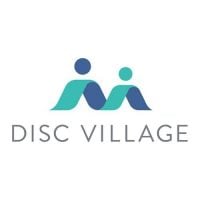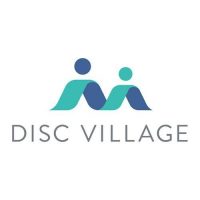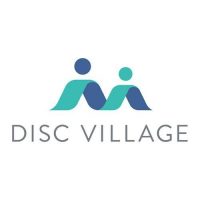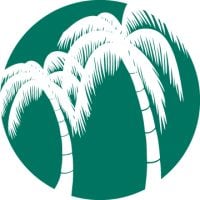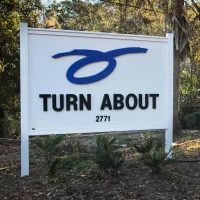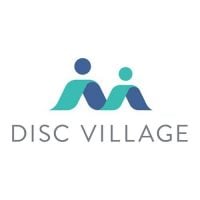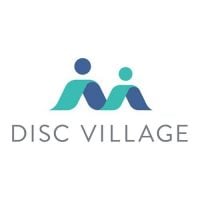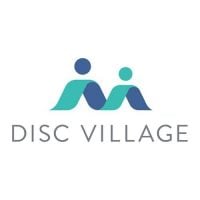Non Secure Programs
Drug Rehab Center in Tallahassee, Florida
Non Secure Programs provides a comprehensive range of evidence-based addiction treatment services, including aftercare support and outpatient programs, as well as cognitive behavioral therapy (CBT), to help individuals struggling with substance abuse, alcohol addiction, opioid addiction and drug addiction achieve long-term sobriety.
Multiple patients have reported Non Secure Programs as permanently closed.
Research other rehabs in Tallahassee, Florida, or get help finding an open facility.
About This Florida Facility
Non Secure Programs in Tallahassee, Florida is a drug treatment center that offers support and treatment for individuals struggling with alcoholism, opioid addiction, substance abuse, and drug addiction. With a focus on helping people get sober and regain their lives, Non Secure Programs provides a range of services to aid in the recovery process. They offer outpatient levels of care, allowing individuals to receive treatment without requiring them to stay at the facility. Affiliated with Keeton Corrections, Non Secure Programs aims to provide a supportive environment for individuals seeking help for their addiction.
Non Secure Programs in Tallahassee, Florida offers a variety of services and treatment methods to assist those struggling with addiction and substance abuse. They provide aftercare support to help individuals maintain their sobriety and successfully transition back into their daily lives. Additionally, Non Secure Programs offers drug rehab services, providing a structured and supportive environment for individuals to detox and receive treatment for their addiction. With outpatient levels of care, they strive to make treatment accessible and flexible for individuals seeking help. By utilizing a combination of therapy, counseling, and support, Non Secure Programs aims to address the underlying causes of addiction and provide tools for long-term recovery.
Genders
Ages
Modality
Additional
Conditions and Issues Treated
Substance Abuse Treatment is important when getting sober, as it helps addicts learn the skills they need to live a clean life. There are many different kinds of recovery treatment, including medication-assisted therapy, behavioral therapeutic approaches and self-help groups, as well as counseling.
Opioid abuse has become a national epidemic in the last decade. The US has one of the world’s highest rates of opioid use and abuse, as well as opioid-related deaths. Opioids are classified as Schedule II-IV controlled substances in the US due to their high potential for abuse.
Oxycodone, hydrocodone, methadone, and fentanyl are the most common Opioids and are commonly prescribed to treat pain. Tolerance to opioids develops over time, making life difficult, if not impossible, without them. Opioid users often obtain the drugs illegally. They can be drug dealers, friends, or family members who do not have valid prescriptions.
The desire for a more intense high than prescription opioids can quickly lead to heroin use. Heroin users are more prone to illness and death due to the high risk of overdose.
Many opioid addicts who seek treatment believe that the only way to overcome their addiction is through medical detox and long-term drug addiction rehab. To help patients wean off their addiction and reduce the risk of overdose, medication-assisted therapy (MAT) involves prescribing a replacement opioid. Doctors use MAT in conjunction with other anti-craving medications to help patients maintain recovery. Due to the high risk of relapse, MAT is often combined with individual and group counseling and social support programs.
Levels of Care Offered at Non Secure Programs
This center offers a variety of custom treatment tailored to individual recovery. Currently available are Aftercare Support, Drug Rehab, Outpatient, with additional therapies available as listed below.
An outpatient treatment program is set up to help with alcohol or drug addiction or a co-occurring disorder. The patient must attend the facility for their therapy and other programs but can return home each night.
The frequency of mandatory attendance decreases after much of Non Secure Programs‘s program is complete.
Outpatient treatment is a recovery approach that allows recovering addicts to live at home while getting rehab for addiction
An outpatient can include day treatments which include attending group sessions one hour per week. A person living in an outpatient environment may be allowed the opportunity to work full time if they choose to and continue studies without interruption from drugs/alcohol.
Outpatient treatment is an option for people who want to maintain their careers and families. Outpatients live at home but attend treatment such as individual counseling, group counseling, or twelve-step meetings during the day.
Aftercare support is vital to the success of someone in drug or alcohol treatment. It involves assisting with entering a sober living home, getting career counseling or educational assistance and even getting the individual lined up with programs like AA and NA. This support helps recovering addicts readjust to normal day-to-day activities and maintain sobriety.
When a person is in drug or alcohol treatment, they have to increase their focus on themselves. They need to learn how to recognize the triggers that cause them to relapse and learn the habits that would benefit them if they were to be sober. This is all part of the growth in recovery, and aftercare is essential to that process.
Therapies & Programs
At Non Secure Programs , to learn from past mistakes and improve one’s situation, the recovering person meets individually with a therapist. The counselor or therapist will address addiction causes, triggers, mental issues, dual diagnosis, and aftercare plans during this time. This is a very intense and challenging process. Some clients find it easier to open up to someone other than family or friends who understand their struggles with addiction.
Family therapy is a crucial part of drug treatment and getting sober. It is one of the most effective ways to help addicts stay on the path to long-term sobriety. An addict’s family can play a vital part in helping them to avoid relapse. They can spot the warning signs and help them get back on track.
In group therapy, recovering addicts meet with a therapist and other people in recovery. Some groups are closed, meaning only people who share the same addiction or problem can attend. Others are open to anyone who wants to stop using drugs or drinking alcohol. Group therapy sessions typically focus on one topic each week or month so that recovering addicts can discuss issues they face daily.
Drug and alcohol addiction can lead to a breakdown in life skills. Learning certain life skills can help those who are struggling with addiction. Life skills training at Non Secure Programs in Tallahassee, FL teaches patients skills such as time management, budgeting, and social abilities to improve their quality of life and prevent relapse.
An addict’s life skills are maladaptive, meaning they are counterproductive. An addict may have learned poor time management skills growing up, have a hard time budgeting money, or be socially awkward. An addict’s poor life skills can lead to relapse and the inability to achieve long-term sobriety. Life skills training teaches patients effective coping mechanisms, which can help them live a clean and sober life.
Keeton Corrections Associated Centers
Discover treatment facilities under the same provider.
Learn More About Keeton Corrections Centers
Additional Details
Specifics, location, and helpful extra information.
Tallahassee, Florida 32305 Phone Number(850) 575-5007 Meta DetailsUpdated November 25, 2023
Staff Verified
Patient Reviews
There are no reviews yet. Be the first one to write one.
Tallahassee, Florida Addiction Information
Florida is one of the nation's epicenters for substance abuse and drug-related overdoses. In 2014, around 410,000 Florida residents were addicted to drugs and alcohol. Over the last 10 years, 12% of all deaths in the state were attributed to substance abuse. Treatment admissions for alcohol reached 24,329 patients in 2016, and 2.5% of Florida high school students admitted to using crack cocaine.
15% of Tallahassee residents reported heavy alcohol use in the past 30 days. 10.3% of the population struggles with substance abuse. Heroin is the most commonly used drug, followed by alcohol and marijuana. The city is spending more money on law enforcement and rehabilitation programs. There are many drug treatment options available in Tallahassee, Florida. These include inpatient treatment, outpatient treatment, 12-step programs, and sober living homes.
Treatment in Nearby Cities
- Miami Beach, FL (408.4 mi.)
- Lake City, FL (100.7 mi.)
- Panama City Beach, FL (90.9 mi.)
- Intercession City, FL (224.6 mi.)
- Apalachicola, FL (62.1 mi.)
Centers near Non Secure Programs
The facility name, logo and brand are the property and registered trademarks of Non Secure Programs, and are being used for identification and informational purposes only. Use of these names, logos and brands shall not imply endorsement. RehabNow.org is not affiliated with or sponsored by Non Secure Programs.


